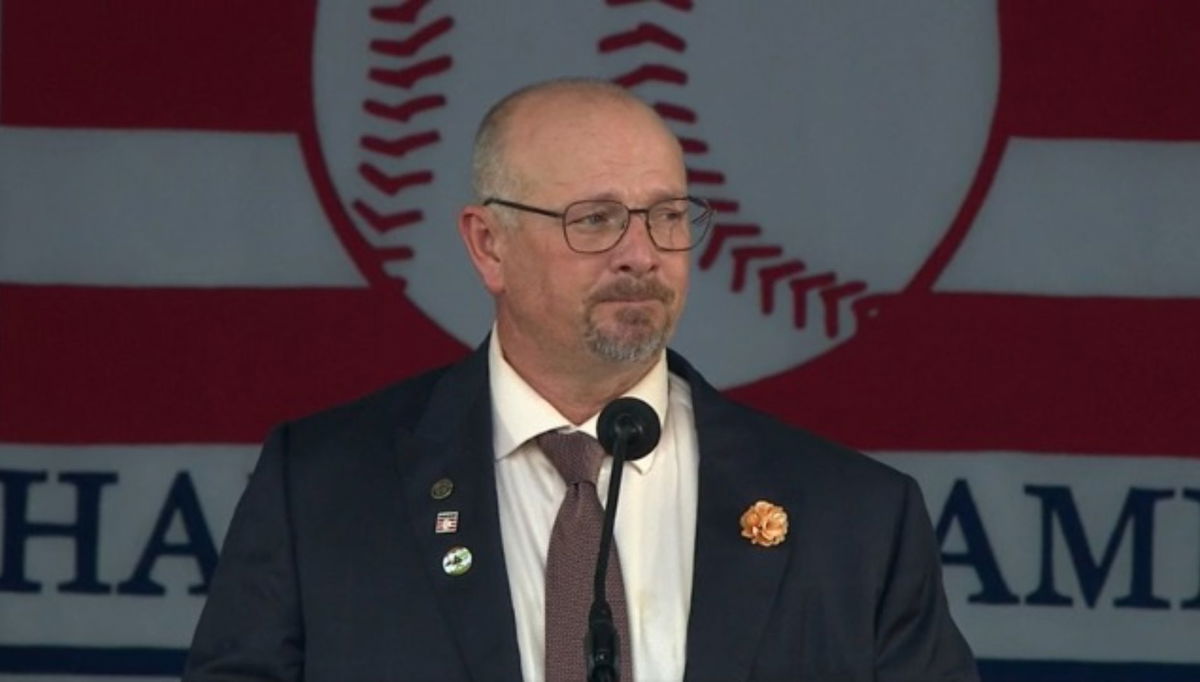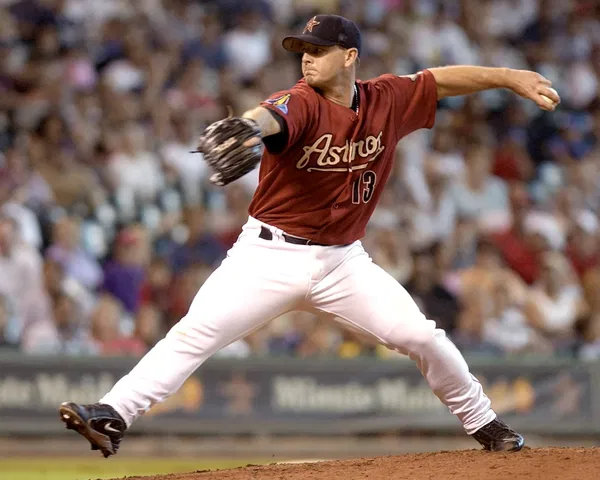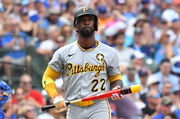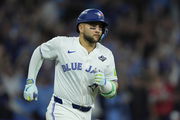
Imago
Credit: MLB.com

Imago
Credit: MLB.com
Baseball has always prided itself on unearthing hidden gems, but sometimes the game loses its brightest miners. MLB, a league built as much on scouting notebooks as on box scores, now mourns one of its great architects. Billy Wagner’s path from overlooked arm to legendary closer was no accident—it was vision, persistence, and a scout’s unwavering eye. And now, that irreplaceable eye has closed, leaving the game poorer for it.
Watch What’s Trending Now!
It is never easy to say goodbye to someone who has done great things for the sport. One of those people was Roy Clark. Many people may not know him, but when you look back at the impact he has had on MLB, things will look very different, and we will feel grateful to him.
The heartbreaking news has just rolled in through Bob Nightengale as he posted, “RIP legendary baseball scout Roy Clark, who spent 20 years with Atlanta and later worked with the Washington Nationals and Kansas City Royals.“
ADVERTISEMENT
RIP legendary baseball scout Roy Clark, who spent 20 years with Atlanta and later worked with the Washington Nationals and Kansas City Royals.
— Bob Nightengale (@BNightengale) August 23, 2025
Roy Clark shaped modern baseball quietly, brick by brick, through relentless, discerning amateur scouting excellence. From Atlanta to Washington, Los Angeles, and Kansas City, his fingerprint elevated entire organizations over decades. He proved that talent evaluation blends grit, preparation, and empathy, not merely stopwatch times or pedigrees. That philosophy produced waves of big leaguers and fortified farm systems ripe for contention for years.
Consider Billy Wagner, discovered at Ferrum, flicking lightning while Clark’s older radar gun lagged behind. Readings screamed ninety-two, ninety-three, then ninety-four—translating to triple digits on modern equipment by today’s calibrated standards. That afternoon began Wagner’s ascent from Division III marvel to Hall of Fame immortality in 2025. Clark’s instant conviction and patience turned skepticism into a blueprint for recognizing unconventional excellence early.
ADVERTISEMENT

ADVERTISEMENT
Beyond Wagner, Clark’s Braves drafts birthed cornerstones: Freddie Freeman, Heyward, McCann, Kimbrel, Morton, Wainwright, and Marquis. With Washington, he stewarded elite prospect pipelines, landing Bryce Harper, Anthony Rendon, and Lucas Giolito. A Dodgers stint sharpened cross-checking breadth, while Kansas City tapped his experience to strengthen amateur scouting. Through these stops, his mentorship compounded outcomes, professionalized processes, and uplifted scouting cultures across departments everywhere.
Clark’s true legacy lives in the youth systems he nurtured—letters, workouts, notebooks, and relentless regional coverage habits. Those habits built trust, accelerated pipelines, and transformed raw promise into sustainable competitive depth for contenders. Seamlessly, today’s Royals benefit from yesterday’s Braves’ rigor and Nationals’ draft-room conviction, shaping future championship windows. In every stop, Clark’s eye reframed possibility, proving baseball’s future starts with courageous curiosity and persistence.
ADVERTISEMENT
Roy Clark’s passing reminds us that while box scores fade, legacies inked in player development endure. MLB thrives on the stars we cheer, but it survives because of men like Clark who found them. From Billy Wagner’s rise to Dayton Moore’s career, his fingerprints remain everywhere the game still breathes. Baseball will replace scouts, but it won’t replace Roy Clark—because architects of dynasties aren’t hired, they’re remembered.
Remember the Braves’ Golden Era? Roy Clark was the mind behind it
Baseball dynasties aren’t built on chance; they’re stitched together by sharp eyes and sharper instincts. While fans remember the Braves for Maddux, Glavine, and Smoltz, they often forget the architect working behind the curtain. Roy Clark wasn’t throwing pitches or hitting homers, but he was stacking the deck with talent. His knack for spotting greatness—Billy Wagner included—turned whispers of potential into the roar of sustained dominance.
ADVERTISEMENT
Roy Clark’s scouting eye turned raw potential into Atlanta’s golden era of sustained baseball dominance. He was responsible for Jason Heyward, Freddie Freeman, Brian McCann, Jeff Francoeur, Charlie Morton, Craig Kimbrel, and Adam Wainwright. Each name became a pillar, ensuring the Braves weren’t just competitive but consistently elite across generations. Clark’s ability to pair talent with character gave Atlanta a culture of winning admired throughout MLB.
The Atlanta Braves’ pipeline of stars was no accident—it was Clark’s blueprint of scouting brilliance and foresight. His drafting decisions created stability, delivering not only playoff runs but also iconic figures for the franchise. Clark’s fingerprints were visible every October, woven into Atlanta’s remarkable run of success and respect. Without his influence, the Braves’ identity as perennial contenders may have never reached legendary heights.
Top Stories
Max Scherzer’s “Unfinished Business” Sends Clear Signal to Blue Jays After Honest Plea to All 30 MLB Teams

Pirates to Bolster Offense With $42M Powerhouse as Andrew McCutchen Hits Point of No Return- Report

Carlos Mendoza Sends Clear Message to Bo Bichette After Ex-Blue Jays Star’s Heartfelt Note to Vladimir Guerrero Jr.

Tarik Skubal’s Detroit Exit All but Confirmed as Tigers Poised to Lose $13M Dispute, Per Insider

First-Ever Nicaraguan Yankees Star Bids Teary-Eyed Goodbye to New York After Joining $1.5B MLB Rival

So while Maddux, Glavine, and Smoltz carved up hitters, it was Clark carving up drafts. His scouting board, not the batter’s box, was where Atlanta’s real advantage quietly lived. Roy Clark didn’t just give the Braves stars—he gave them staying power in a ruthless league. In a game obsessed with numbers, his greatest stat might be the dynasty itself.
ADVERTISEMENT
ADVERTISEMENT
ADVERTISEMENT
ADVERTISEMENT